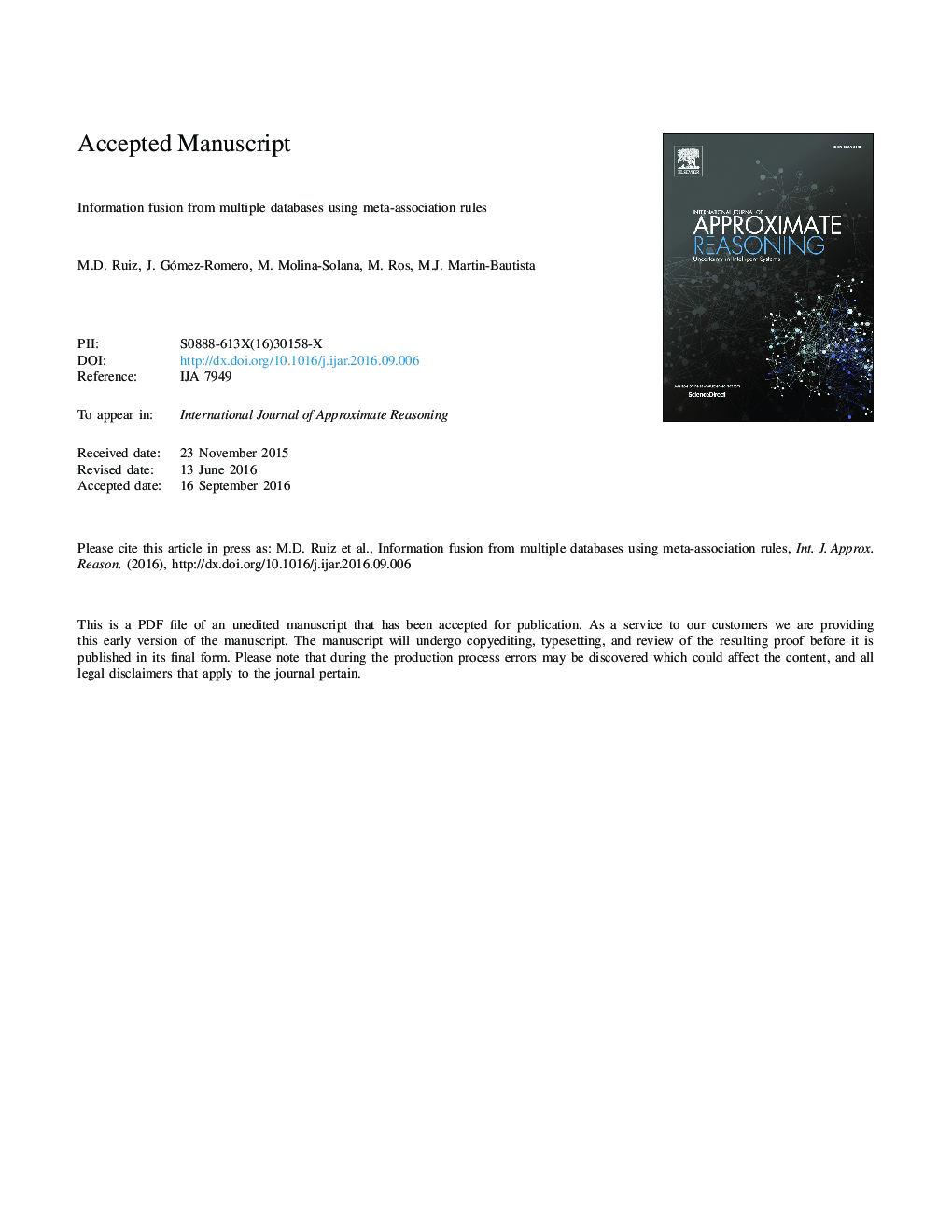| Article ID | Journal | Published Year | Pages | File Type |
|---|---|---|---|---|
| 6858887 | International Journal of Approximate Reasoning | 2017 | 27 Pages |
Abstract
Nowadays, data volume, distribution, and volatility make it difficult to search global patterns by applying traditional Data Mining techniques. In the case of data in a distributed environment, sometimes a local analysis of each dataset separately is adequate but some other times a global decision is needed by the analysis of the entire data. Association rules discovering methods typically require a single uniform dataset and managing with the entire set of distributed data is not possible due to its size. To address the scenarios in which satisfying this requirement is not practical or even feasible, we propose a new method for fusing information, in the form of rules, extracted from multiple datasets. The proposed model produces meta-association rules, i.e. rules in which the antecedent or the consequent may contain rules as well, for finding joint correlations among trends found individually in each dataset. In this paper, we describe the formulation and the implementation of two alternative frameworks that obtain, respectively, crisp meta-rules and fuzzy meta-rules. We compare our proposal with the information obtained when the datasets are not separated, in order to see the main differences between traditional association rules and meta-association rules. We also compare crisp and fuzzy methods for meta-association rule mining, observing that the fuzzy approach offers several advantages: it is more accurate since it incorporates the strength or validity of the previous information, produces a more manageable set of rules for human inspection, and allows the incorporation of contextual information to the mining process expressed in a more human-friendly format.
Related Topics
Physical Sciences and Engineering
Computer Science
Artificial Intelligence
Authors
M.D. Ruiz, J. Gómez-Romero, M. Molina-Solana, M. Ros, M.J. Martin-Bautista,
